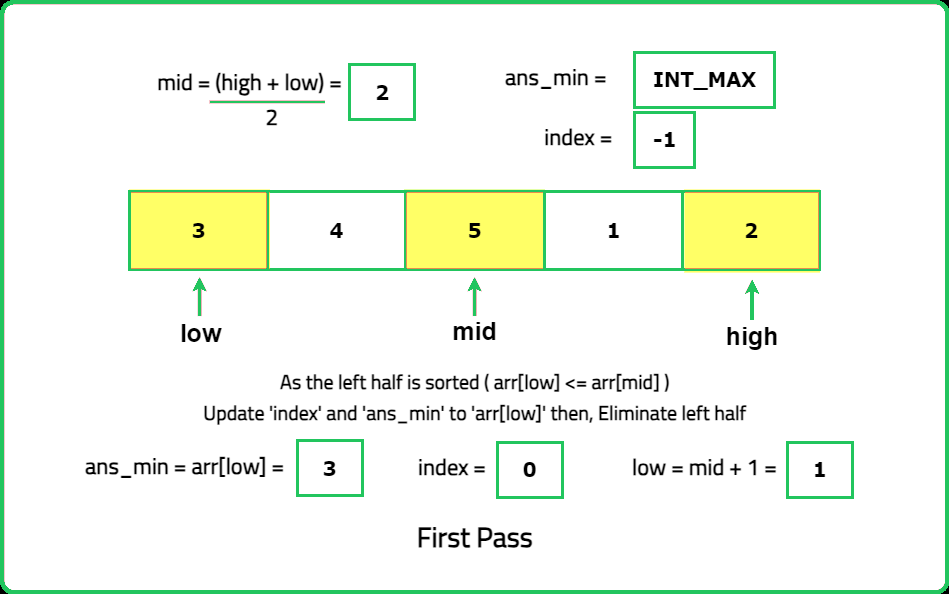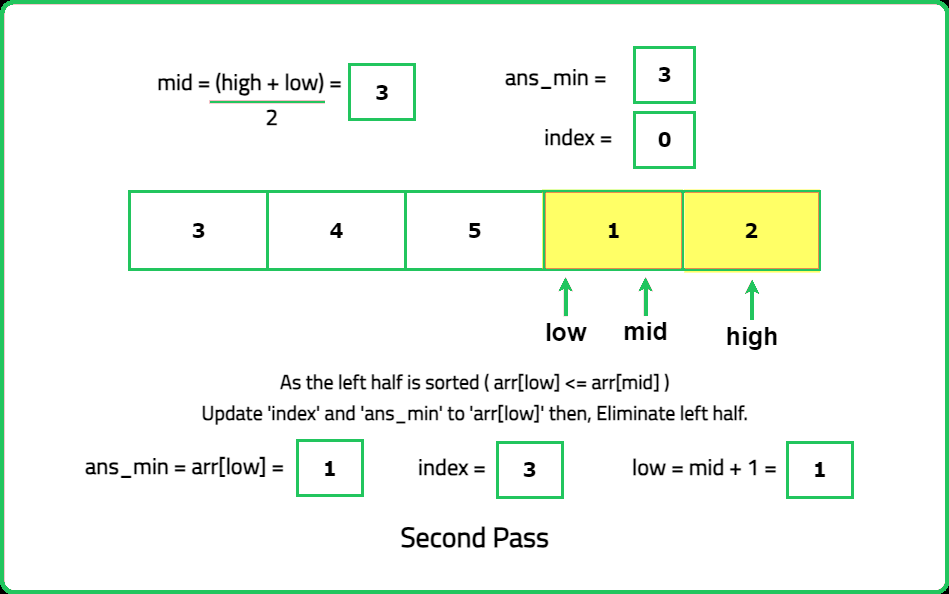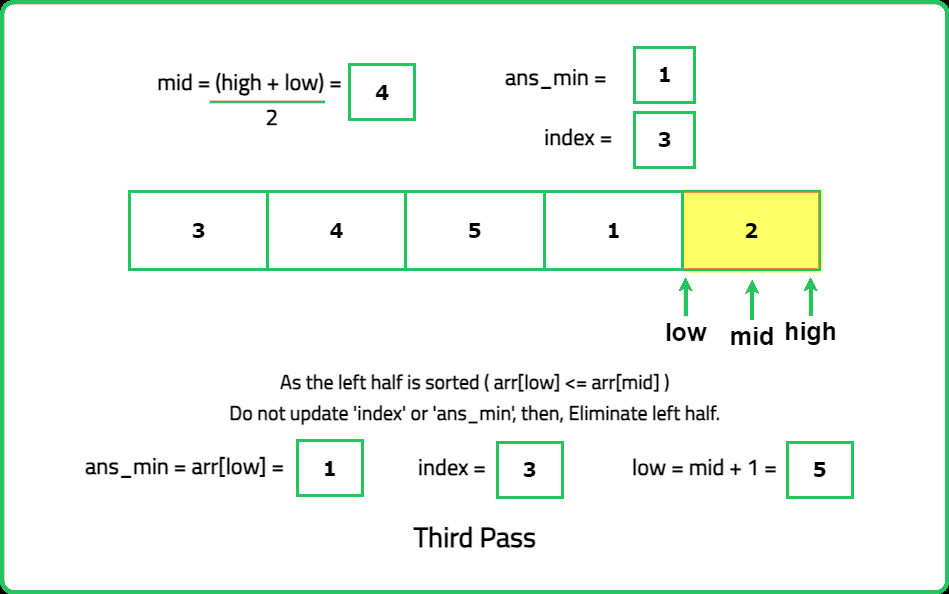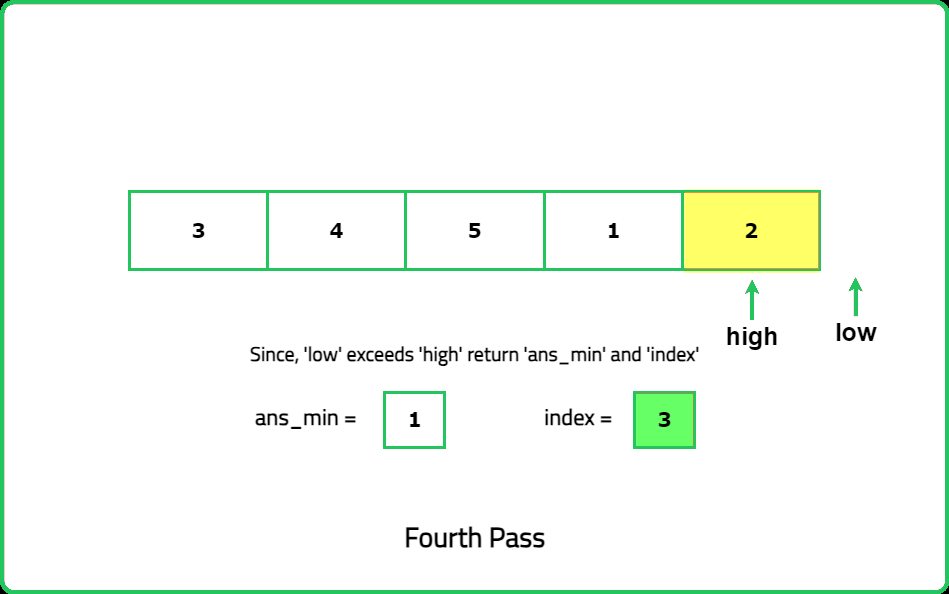Find out how many times the array is rotated
Binary Search
Logic Building
Easy
Given an integer array nums of size n, sorted in ascending order with distinct values. The array has been right rotated an unknown number of times, between 1 and n. Determine the number of rotations performed on the array.
Examples:
Input : nums = [4, 5, 6, 7, 0, 1, 2, 3]
Output: 4
Explanation: The original array should be [0, 1, 2, 3, 4, 5, 6, 7]. So, we can notice that the array has been rotated 4 times.
Input: nums = [3, 4, 5, 1, 2]
Output: 3
Explanation: The original array should be [1, 2, 3, 4, 5]. So, we can notice that the array has been rotated 3 times.
Input: nums = [4, 5, 1, 2]
Constraints
- n == nums.length
- 1 <= n <= 104
- -104 <= nums[i] <= 104
- All the integers of nums are unique.
Hints
- The rotation count is equivalent to the index of the smallest element (pivot) in the rotated sorted array.
- "Use binary search to locate the smallest element (pivot) efficiently: If nums[mid] > nums[high], the pivot lies in the right half. Update low = mid + 1. If nums[mid] <= nums[high], the pivot lies in the left half or is the middle element itself. Update high = mid."
Company Tags
PwC
Philips Healthcare
Airbnb
Byju's
HCL Technologies
ARM
Pinterest
Riot Games
Splunk
Goldman Sachs
Boston Consulting Group
Oracle
Docker
Johnson & Johnson
Siemens Healthineers
Nutanix
Roblox
Deloitte
Databricks
Intel
Zoho
Chewy
Epic Games
Unity Technologies
Salesforce
TCS
Cognizant
Accenture
Infosys
Capgemini
Wipro



